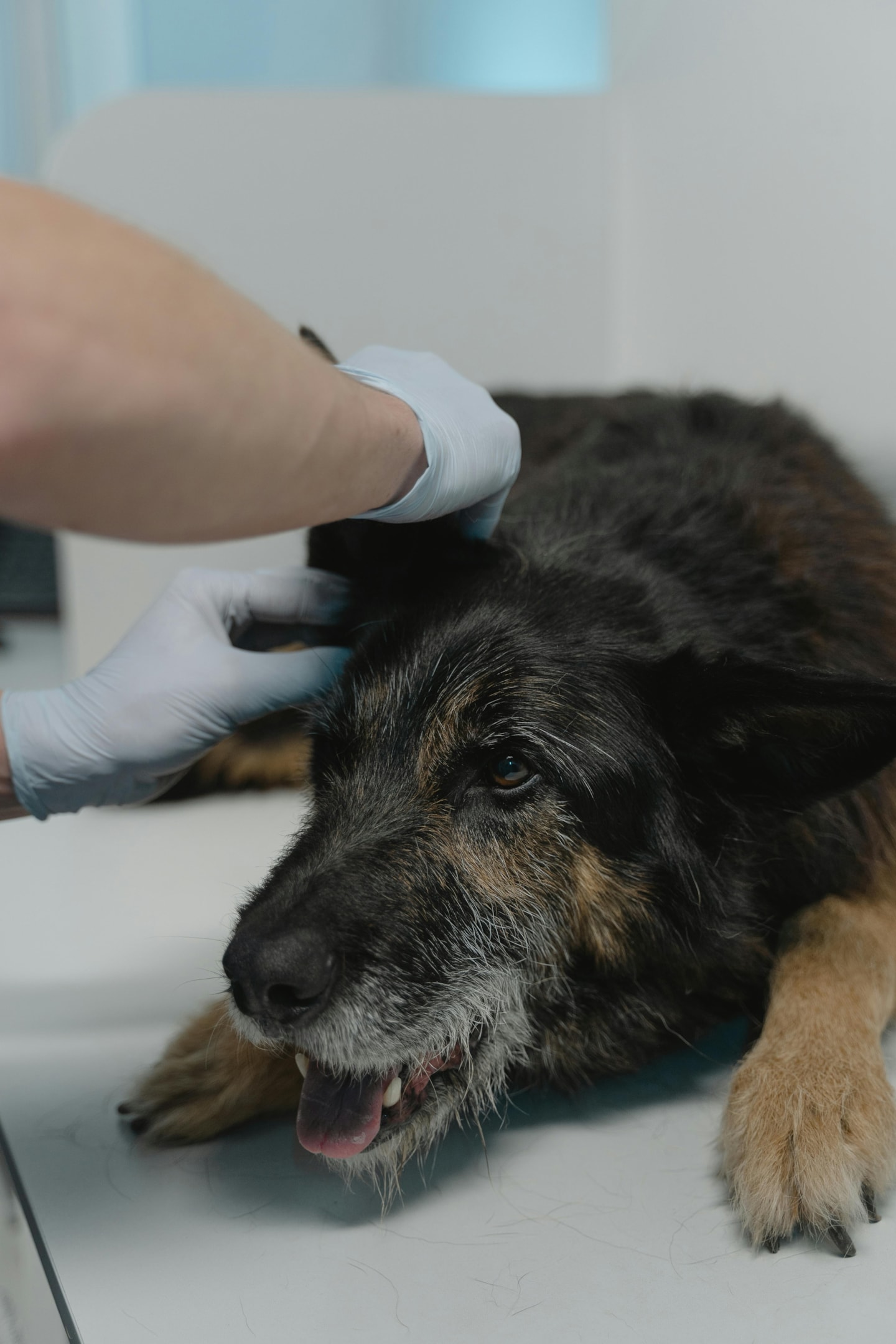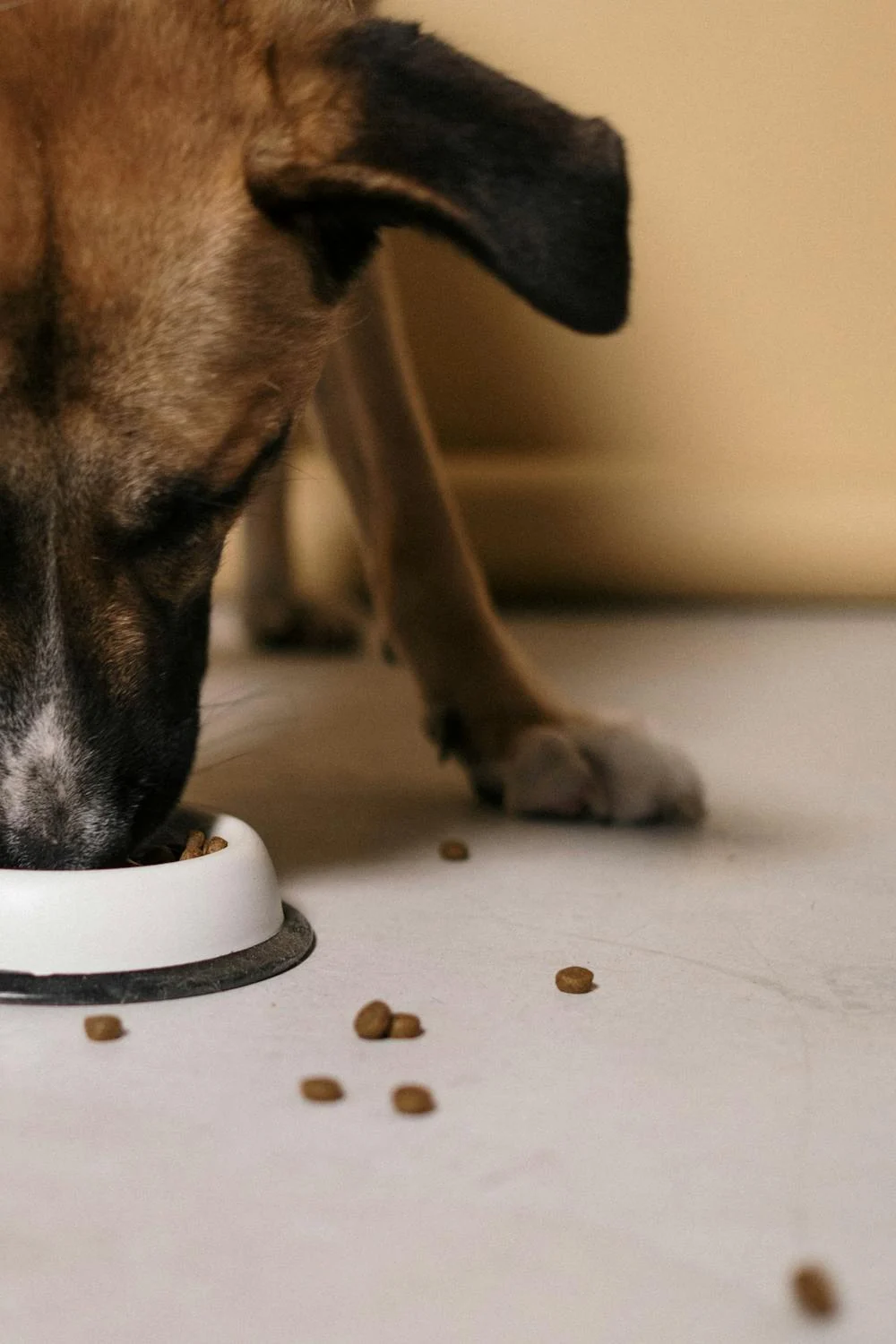Understanding Weight Loss in Senior Dogs
It's not just an issue for humans: weight change can really impact our pups.
Age-related weight changes are common in older dogs, and we can see the number on the scale go up or down, depending on the individual.
In this article, we will detail why your older dog losing weight can happen, aspects of the pet's condition, and why speaking to your vet to get an accurate diagnosis is critical for your older dog.
Important Note: This article is intended for informational purposes only and does not constitute medical advice. Always consult your veterinarian for diagnosis and treatment of any health concerns regarding your pet.
Table of Contents |
Introduction
When dogs gain weight, it is usually fairly simple to explain: as dogs get older, their resting metabolic rate declines slowly, so they may need fewer calories than they did when they were younger. Many senior dogs are less physically active than they were as younger pups, so they may have less metabolically active muscle mass to sustain, and also be burning few calories through exercise. Over time, these things can all add up to extra pounds on our furry friends!

Weight loss, on the other hand, can be a little trickier to untangle. Gradual weight loss can be a natural part of the aging process, but sudden or significant weight loss in older dogs can be an indicator that we need to take a closer look for possible health problems.
Let’s talk about some common causes of weight loss in senior dogs, and what you should do it you think your dog is losing weight!
Why is My Older Dog Eating Less Than He Used To?
Older dog parents commonly find that their dogs are eating less than they did when they were younger, which can contribute to weight loss. There are several common causes for this:
Decreased Sensory Input
Dogs have an extraordinary sense of smell, and rely heavily on their noses to navigate the world, including identifying and enjoying their food. As they age, the number of olfactory receptors in their noses decreases, muting their favorite aromas. This can make the dog’s diet seem less appealing, leading to a decreased interest in eating.
And just like humans, dogs experience a decrease in taste perception as their number of taste buds declines with age. This can make it harder to distinguish between flavors, making food seem bland and contributing to appetite loss.
Kidney Disease
As our dogs enter their senior years, the normal wear and tear of life can take a toll on their internal organs. One of the most common areas affected by aging is the kidneys, which are responsible for filtering waste products from the blood, maintaining fluid balance, and regulating blood pressure.
Chronic kidney disease can cause decreased appetite when waste products build up in the blood, making them feel nauseated or unwell. It can also cause muscle wasting, which lowers their metabolic rate and further decreases their interest in food.
Gastrointestinal Disease
Another common cause of decreased appetite in older dogs is gastrointestinal (GI) disease. Age-related changes to the digestive system can make dogs more prone to conditions like inflammatory bowel disease (IBD), malabsorption that prevents them from effectively absorbing nutrients from food, and disruptions to their gut microbiome that can lead to inflammation and nausea. Decreased nutrient absorption can also lead to weight loss despite a normal appetite.
Diabetes Mellitus
This serious hormonal disease affects the pancreas, the organ responsible for producing insulin. Insulin is a hormone that acts like a “key”, allowing blood glucose (sugar) to enter cells and be used for energy. When the pancreas doesn’t produce enough insulin in diabetic dogs, glucose builds up in the bloodstream and causes health problems.
Dogs with diabetes will commonly drink and urinate more than usual, as their body tries to flush out excess glucose from the bloodstream. Their appetite is often increased, but they still lose weight despite eating well, due to their body’s inability to use glucose for energy.
Heart Disease
Heart problems in dogs can cause weight loss as decreased blood flow to the GI tract interferes with nutrient absorption. Coughing or increased work of breathing can make dogs less interested in eating since they prioritize breathing over food.
Some types of heart disease can cause fluid buildup in the abdomen, putting pressure on the stomach and making dogs feel “full” and reducing their appetite.
Finally, heart disease often causes fatigue and shortness of breath, which makes affected dogs less active, leading to muscle wasting that contributes to overall weight loss.
Cancer
A common sign of cancer in senior dogs is weight loss. Muscle loss is often one of the first things people notice in their dog, although it’s not present in every dog with cancer. Cancer can affect many different body systems, and some types are more obvious than others. Changes in your dog’s appetite, or weight loss despite them eating normally, are always worth pointing out to your veterinarian.
Cognitive Dysfunction
Similar to Alzheimer’s disease in humans, cognitive dysfunction syndrome can cause a number of behavior changes in senior dogs. Confusion and disorientation can lead to decreased interest in food, and repetitive behaviors like pacing can interfere with eating. Many dogs with cognitive dysfunction show signs of anxiety, which can suppress appetite and lead to weight loss.
Recognizing the Signs of Weight Loss in Older Dogs and What to Do
The sooner you notice that your senior dog is losing weight, the better we can help!
One easy way to monitor your senior dog’s body condition at home is by feeling their ribs: with your dog standing next to you, lightly run your fingers down the side of their chest. You should be able to easily feel most of their ribs with light pressure, but you shouldn’t be able to see all of their ribs clearly through their skin.
Additionally, paying attention to their appetite, energy level, bathroom habits, and overall demeanor. These can be early warning signs we can use to catch problems quickly.
If you notice your senior dog losing weight, the first step is to see your veterinarian for an exam and some diagnostics. Your veterinarian may recommend bloodwork, urinalysis, fecal testing, or x-rays to get a more complete picture of your dog’s health. We can often identify diseases and illnesses that are very treatable, especially when we catch them early! The more information you have, the better equipped you’ll be to make good decisions for your dog.

Conclusion
An older dog losing weight can be a stressful time for a dog parent. While this article does not constitute medical advice, the key takeaway of consulting with your vet is the main message we hope to convey. As your senior dog is losing weight, be sure to consult with your vet on ways to help your dog gain weight in a healthy way.
In the end, the love you have for your senior dog is unmatched, and their happiness is your top priority. With a little guidance and support, you can give them the care they need to thrive. Let’s keep this journey together.
FAQs
1. Is it normal for my senior dog to lose weight?
While some gradual weight loss can be a normal part of the aging process, sudden or significant weight loss is more often a sign of problems. Noticeable weight loss in your senior dog is worth a visit to your veterinarian to look for underlying health conditions.
2. What should I do if I think my senior dog is losing weight?
First, schedule an appointment with your veterinarian. A thorough physical exam can give us a lot more information about your dog’s overall health, and they can recommend any diagnostics that will help determine the cause of your dog’s weight loss.
3. My senior dog seems healthy, but they’re losing weight. Should I be concerned?
Yes - many underlying health conditions can progress for a long time without obvious clinical signs. Sometimes weight loss is the only indicator we’ll see of a more serious condition. The earlier we diagnose a problem, the more effectively we can treat!
4. Can changes in my dog’s diet lead to weight loss?
Absolutely! Switching to a new food that is lower in calorie density can lead to weight loss, since your dog will take in fewer calories even if they’re eating the same volume of food. Many senior diets are lower in calorie density than adult diets, and transitioning to a senior food can sometimes lead to inadvertent weight loss.





